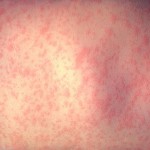What is swine flu?
Swine flu is the common name given to a new strain of influenza (flu).
Pandemic (H1N1) 2009 is a new flu virus which has been circulating worldwide since April. The World Health Organisation has declared this to be pandemic – a flu epidemic that spreads around the world.
Does this flu spread easily?
The new flu virus appears to be highly contagious and can spread quickly from person to person through tiny drops in coughs and sneezes. If you are close to a person with flu you can breathe them in and become infected. Droplets can also be passed from surfaces like door handles and hand rails.
How long does the virus live on surfaces?
The flu virus can live on a hard surface for up to 24 hours, and a soft surface for around 20 minutes.
How easily does this flu spread?
It appears that after a person becomes infected, it takes less than two days for symptoms to start and this is when people are most infectious. Influenza spreads quickly in closed communities such as schools or residential homes.
What are the symptoms?
For the vast majority of people, swine flu will be a mild flu-like illness. The most common symptoms are a fever, sore throat, diarrhoea, headache, cough, and pains and aches. In other words, the illness and symptoms are very similar to seasonal (regular) flu. Most people recover within a week and the treatment is the same as for an ordinary flu – rest, fluids, paracetamol and to stay at home.
What are the differences between pandemic (H1N1) 2009 and the common cold?
It can be difficult at times to distinguish between the common cold and influenza. The main difference is that the symptoms of influenza come on rapidly and are typically accompanied by muscle aches and a fever. The common cold has a more gradual onset and is associated with a runny nose and sneezing. An important additional feature of Pandemic (H1N1) 2009 is that diarrhoea and vomiting occur occasionally.
What should I do if I get sick?
If you get sick with a flu-like illness, phone the HSE Flu Information Line on Freephone 1800 94 11 00, available 24 hours a day. Listen to the symptoms of flu and the advice on home care. Most people with flu will be able to recover at home within a few days without needing anti-viral medicine or medical care.
If you have severe symptoms, or are in a high risk group, contact your GP/family doctor by telephone. They will decide if you need testing or treatment.
If you do need to be tested or treated the GP may arrange for you to be seen at their surgery or may arrange a home visit. You should stay at home for 7 days while ill unless needing further care.
how do I care for myself or someone else at home?
Stay at home for up to 7 days or until you fully recover.
• Discourage any visitors
• Take medicines such as Paracetamol or ibuprofen to reduce the symptoms
• Drink plenty of fluids
• Most people with flu will recover within a few days.
Call the Flu Information Line 1800 94 11 00 to get more advice on home care.
When should I contact my GP?
Only if a person develops severe symptoms or the symptoms last more than a few days do they need to contact the GP. If people are going to consult their GP they should alert the surgery that they have flu symptoms in advance of arrival.
Also, patients in defined risk groups should contact their GP if they develop flu-like illness. These groups are:
1. People with chronic respiratory, heart, kidney, liver or neurological disease.
2. Those people that may have suppressed immune systems due to disease or treatment.
3. Those with diabetes, people aged 65 years and older; children under 5, people on medication for asthma, the severely obese and pregnant women.
Has swine flu arrived in Claregalway?
Yes. We see 1 – 2 patients daily with swine flu. Unfortunately because of HSE regulations we can only send confirmatory swabs on a small proportion of patients we suspect have influenza.
So far the illness appears to be not too severe. All our patients have been treated at home and no serious complications have occurred.
Is there any prevention available?
Not as yet. In severe cases, Tamiflu (an antiviral drug) is used to treat the illness and the symptoms are treated with Paracetemol/Ibuprofen.
Is there a vaccine available against the new Pandemic (H1N1) 2009 virus?
Not yet, but work is underway to develop a vaccine that will be used here and internationally. Ireland has advance orders in place for enough of this vaccine (7.7 million doses) for the Irish population. This will deliver 2 separate doses to each member of the population. Those who have been infected with the virus will not receive the vaccine. The vaccine is expected to be available in mid to late October 2009.




